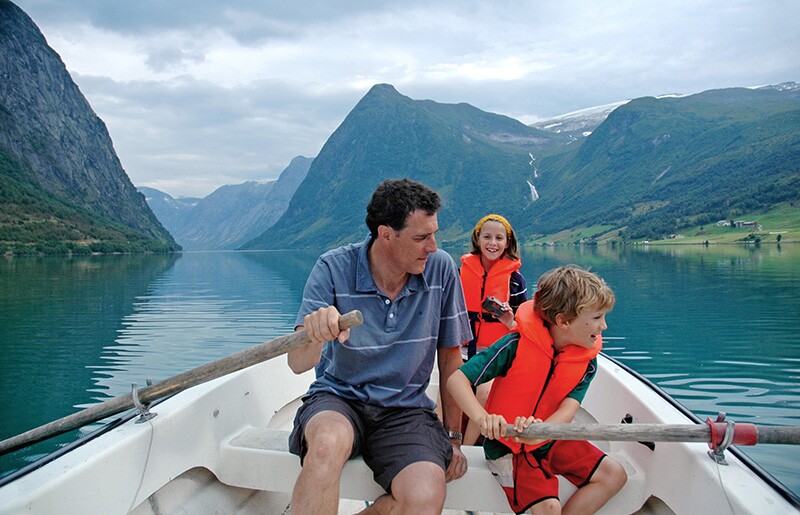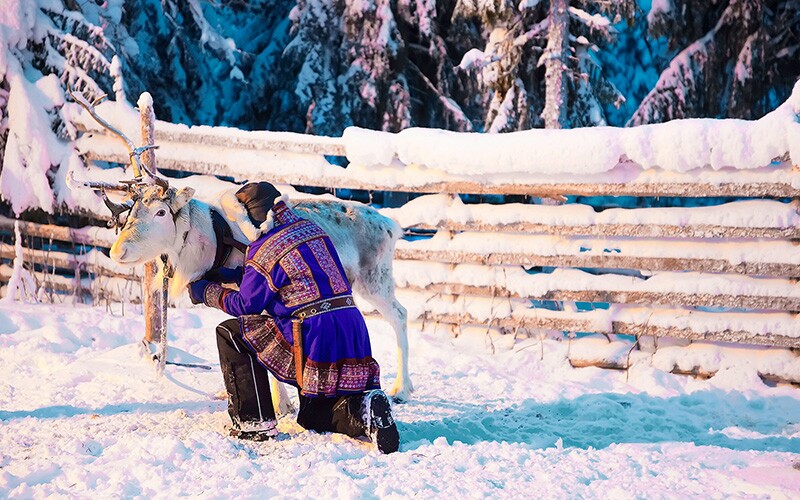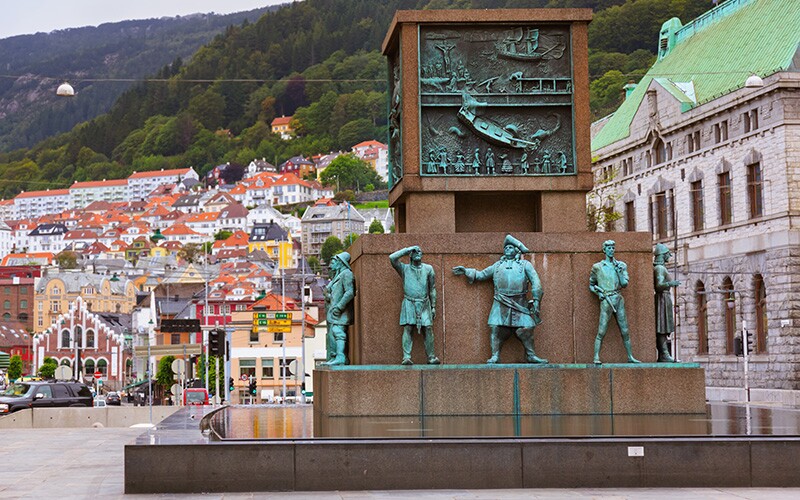Norway—it’s the land of midnight sun and skies lit with brilliant bands of color from the northern lights, of stunningly beautiful fjords and majestic mountains, of bunads, brunost, and joik.
Maybe it’s the land of your ancestors too!
You may see traits of your Norwegian ancestors in your life—for example, a strong sense of family and national identity, a love of nature, a desire to help those in need, and a willingness to work with others to reach a worthwhile goal. These traits are an integral part of Norwegian culture.
Your Norwegian heritage makes you part of a worldwide family that’s over 10 million strong, with over 5 million in Norway and the rest living in countries around the globe. To help you connect with your Norwegian roots, you can explore FamilySearch’s Norwegian records.
Life in Norway
For centuries, many Norwegians earned their livelihood through farming, fishing, or timber. The indigenous Sámi peoples also herded reindeer. With the industrial revolution came textile mills and banks, followed by factories and hydroelectric power. In the late 1960s, rich oil and gas reserves were discovered, giving rise to a strong energy industry. Today, technology jobs are becoming more common.

Norwegians work hard, but they also value a balance between work and life. They place a high priority on family relationships. In addition, many Norwegians feel close ties to nature and enjoy spending time outdoors. Favorite pastimes include skiing, hiking, and boating.
Norway has a unique tradition known as dugnad (literally, “help” or “support”). At a dugnad, neighbors and friends gather to work, unpaid, on anything from a community garden to a playground. It’s a way of improving the community while strengthening friendships.
Norway’s Rich Past
The known history of Norway starts around the 800s with the Vikings, who settled Norway and engaged in trade, travel, and conquest in surrounding areas. Conficts between Viking factions were frequent until, according to tradition, they were united by King Harald Fairhair in 872.

Christianity was introduced in Norway starting in the 1000s. After initial resistance from local leaders, it gained a firmer hold and was the dominant religion by the 1100s.
One of the great tragedies in Norwegian history was the Black Death or Great Plague, which devastated Europe and Asia in the 1300s. A year after it reached Norway in 1349, a third of the population had succumbed.
The Kalmar Union in 1397 unified Sweden, Norway, and Denmark. Sweden left the union in 1523, leaving Denmark and Norway under a single monarch. A series of wars ensued over the years, with Denmark ceding Norway to Sweden in January 1814. Later that year, on May 17, 1814, Norway sought independence by adopting a new constitution.However, they remained under Swedish rule until 1905, when Norway finally gained independence. Norwegians celebrate their independence each year on May 17, called syttende mai or Constitution Day.
Leaving Norway for a New Home
The earliest recorded Norwegian emigration—and perhaps the best known—took place under the leadership of Leif Erikson. His crew settled in what we know today as Newfoundland in Canada.
Emigration continued in the 1600s, with Norwegians joining Dutch colonists in New Amsterdam (present-day Manhattan Island in the United States), and in the 1700s as Norwegian Moravians came to Pennsylvania in the United States.

In 1825, 52 people left Norway aboard the ship Restaurationen to escape religious persecution. Their courageous journey across the Atlantic earned the respect of their new compatriots as well as those back home.
Emigration started in earnest 11 years later, as people were drawn to other lands by promises of opportunity, prosperity, and religious freedom. From 1836 to 1920, an estimated 900,000 people left Norway. They settled mainly in the United States and Canada, although significant numbers made new homes in Brazil, Canada, and the United Kingdom.
Do you want to learn more about your Norwegian heritage?
- Check out your fan chart to see what information on your Norwegian family may already be in the FamilySearch Family Tree.
- Learn more about the Family Tree and how it can help you.
- Use Guided Research to help you start your ancestor search.
- Get additional guidance from the Norway Genealogy page in the FamilySearch Research Wiki.
- Look for Norway on the wiki communities page to find others with an interest in Norwegian family history.
- And don’t forget the FamilySearch collection of Norwegian historical records.
Discover More about Your Norwegian Heritage
At FamilySearch, we care about connecting you with your family, and we provide fun discovery experiences and family history services for free. Why? Because we cherish families and believe that connecting generations can improve our lives now and forever. We are a nonprofit organization sponsored by The Church of Jesus Christ of Latter-day Saints. To learn more about our beliefs, click here.





